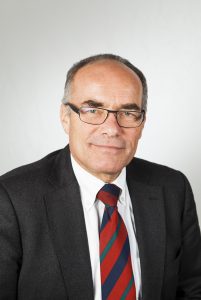Editorial
This latest issue of Mining Report Glückauf seeks to focus mainly on “Teaching and Research in Mining”. As well as giving an overview of the kind of role that mining universities are still being to play, we are taking a look at what currently motivates our home-based mining schools and colleges. We also present an example of the traineeship training at the mining authority in North-Rhine Westphalia.
Even in the very early years of industrialisation in Germany those who were bound for top managerial jobs in the mining industry were given training at dedicated mining schools. Their primary objective was to impart the kind of broad-based technical knowledge that was needed to be able to carry out a wide variety of tasks above and below ground in a professional manner. While at one time there were 19 mining schools in total, including those in the former German territories of Silesia and Bohemia, this figure has now declined to just four. These are: Clausthal-Zellerfeld School of Mining and Metallurgy, which became the Clausthal-Zellerfeld School of Economics and Technology in 1998, Freiberg School of Mines, now the Julius Weissbach College of Business and Technology, the Rhenish Lignite Mining School in Bergheim and the Drilling Technical College in Celle, Lower Saxony. In view of the political decision to phase out all coal and lignite production by 2038 at the latest, and given the uncertain future that fossil fuels are facing in Germany in general – and this also includes the oil and gas production sector – we shall “only” be covering the activities of the Clausthal-Zellerfeld and Freiberg establishments in this issue.
The coronavirus pandemic imposed severe restrictions on teaching schedules at our mining schools and colleges. Digital technologies were therefore exploited to good effect, this in many ways marking a sea-change in the (academic) dissemination of knowledge.
While teaching and research in mining is a theme that features largely in this edition this does not mean neglecting the important topic of the post-mining era. Even though the German hard coal industry became part of the country’s history at the end of 2018 there is still a need to preserve all the professional expertise that was built up over a period of 150 years. Technical innovations and artificial intelligence should help to unlock all this valuable knowledge to future generations. Rising mine-water levels at disused collieries, the way in which this problem is tackled and the treatment of the water emissions have all become crucial “perpetual tasks” for the RAG Aktiengesellschaft. The provision of scientific support for the problem of rising water levels is based on a risk management concept that includes hydro-geochemical monitoring as one of its essential elements
As usual, this particular issue ends with a retrospective look at developments in the German lignite industry in the previous year. On a final note, it will be interesting to see how the international political situation ultimately impacts on the supply and use of fossil fuels in Germany.
With my best regards
Dipl.-Ing. Andreas-Peter Sitte
Chief Editor Mining Report Glückauf, Essen
